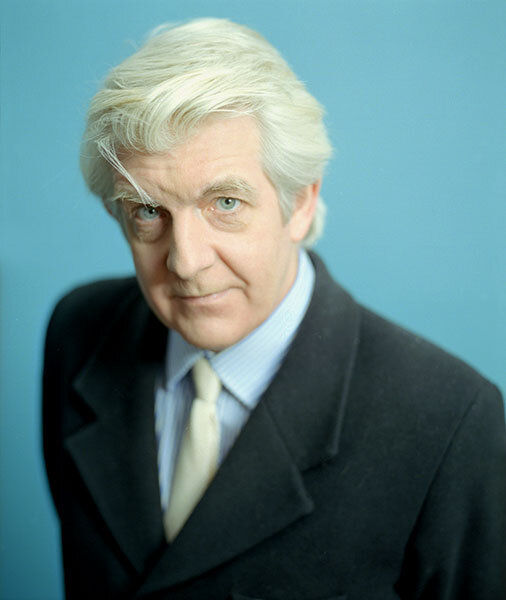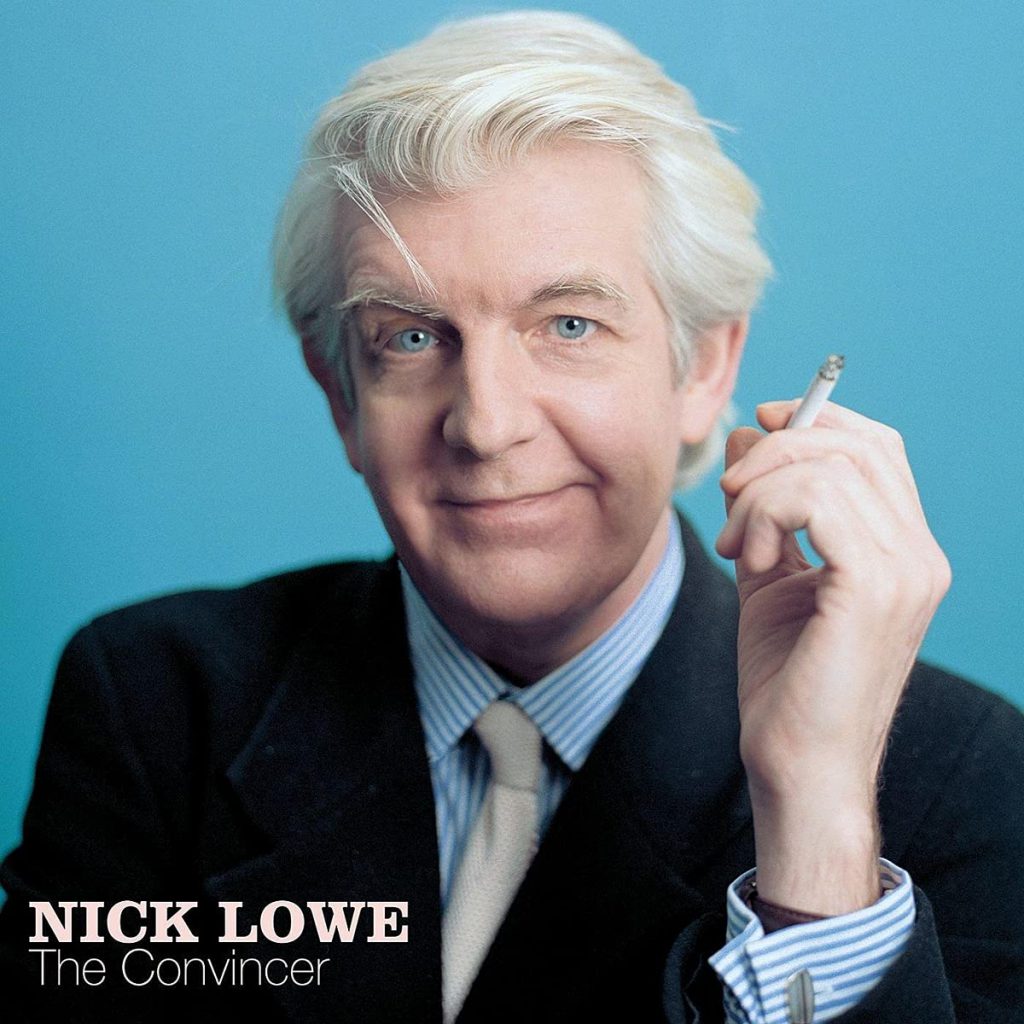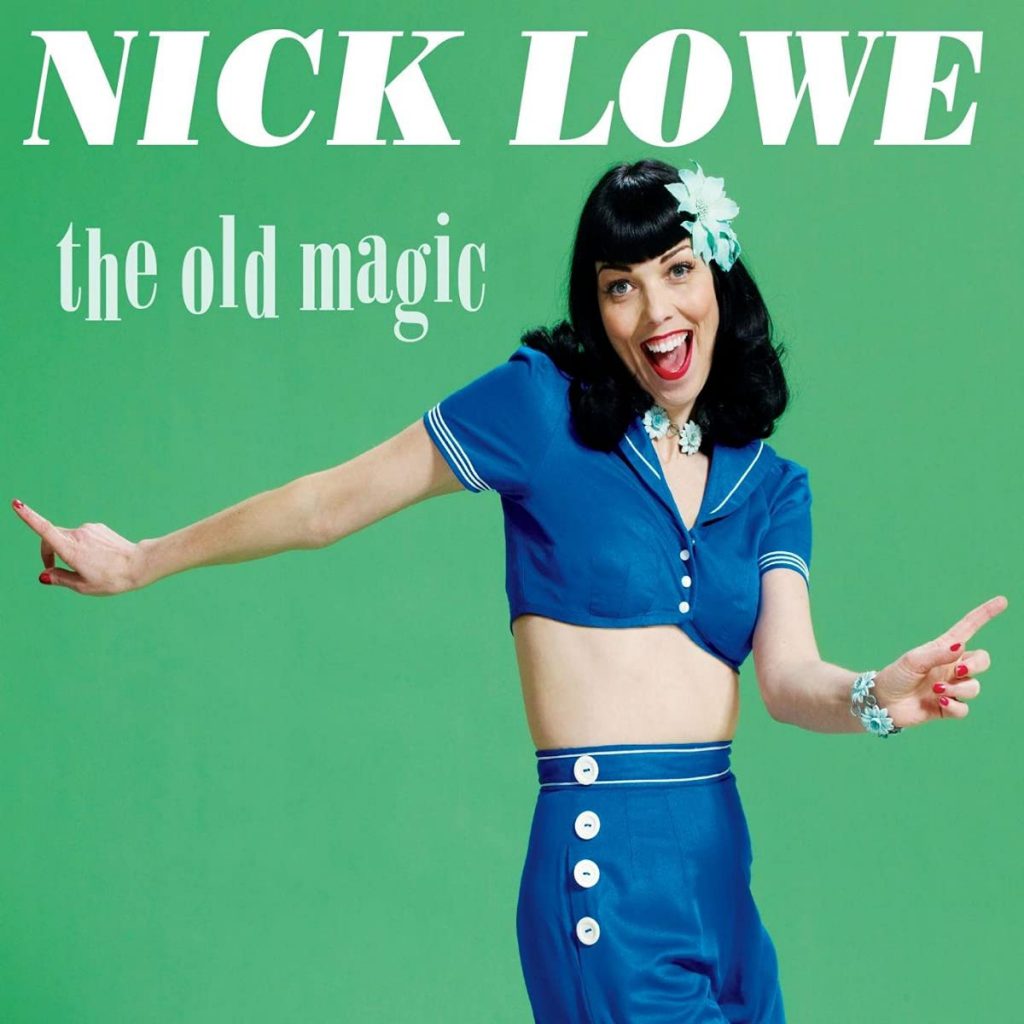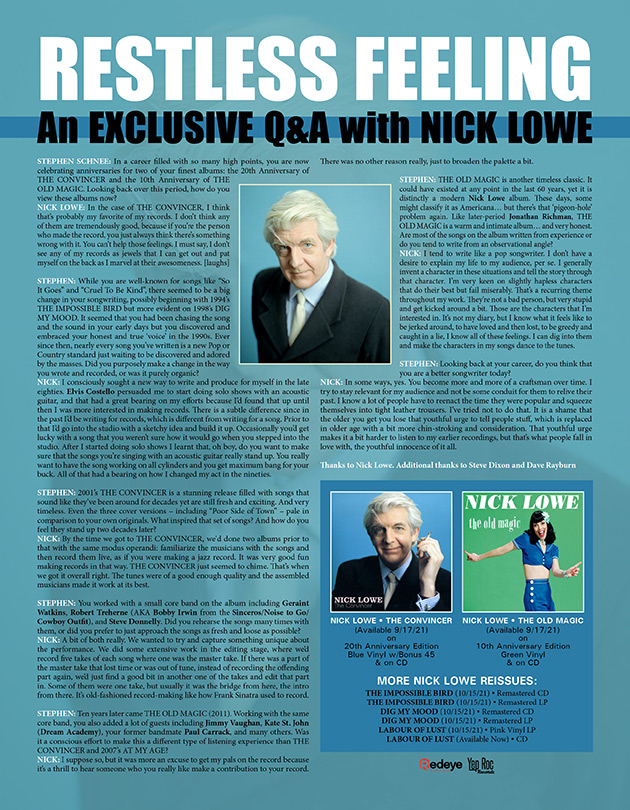
NICK LOWE: In the case of THE CONVINCER, I think that’s probably my favorite of my records. I don’t think any of them are tremendously good, because if you’re the person who made the record, you just always think there’s something wrong with it. You can’t help those feelings. I must say, I don’t see any of my records as jewels that I can get out and pat myself on the back as I marvel at their awesomeness. [laughs]
STEPHEN SCHNEE: You’ve been classified as a Pub Rocker, a New Wave artist, a Power Pop legend, and an iconic producer thanks to the many projects you’ve been involved with over the years. Did you feel comfortable with critics attempting to pigeonhole you? And how would you classify Nick Lowe?
NICK LOWE: I certainly appreciate being classified at all! I know it’s a bit difficult to put me into a pigeonhole and I’m rather pleased about that. I’ve spent quite a lot of time deliberately trying to make myself as unclassifiable as possible whilst writing and playing music which is accessible. I’m not trying to reinvent the wheel, I deal in tried and tested formulas for pop songwriting. I can understand that it’s difficult to put me in a bag because I’ve been all of the people you’ve just mentioned, and I say let them continue if they’d like to.
STEPHEN SCHNEE: While you are well-known for songs like “So It Goes” and “Cruel To Be Kind”, there seemed to be a big change in your songwriting, possibly beginning with 1994’s THE IMPOSSIBLE BIRD but more evident on 1998’s DIG MY MOOD. It seemed that you had been chasing the song and the sound in your early days but you discovered and embraced your honest and true ‘voice’ in the 1990s. Ever since then, nearly every song you’ve written is a new Pop or Country standard just waiting to be discovered and adored by the masses. Did you purposely make a change in the way you wrote and recorded, or was it purely organic?
NICK LOWE: I consciously sought a new way to write and produce for myself in the late eighties. Elvis Costello persuaded me to start doing solo shows with an acoustic guitar, and that had a great bearing on my efforts because I’d found that up until then I was more interested in making records. There is a subtle difference since in the past I’d be writing for records, which is different from writing for a song. Prior to that I’d go into the studio with a sketchy idea and build it up. Occasionally you’d get lucky with a song that you weren’t sure how it would go when you stepped into the studio. After I started doing solo shows I learnt that, oh boy, do you want to make sure that the songs you’re singing with an acoustic guitar really stand up. You really want to have the song working on all cylinders and you get maximum bang for your buck. All of that had a bearing on how I changed my act in the nineties.
STEPHEN SCHNEE: Do you ever see yourself writing another straightforward Pop song like “Surrender to the Rhythm”, “(What’s So Funny ‘Bout) Peace, Love, and Understanding”, “So It Goes” or “Cruel to be Kind” again? Or have you moved on from that frame of mind?
NICK LOWE: I think I sort of still write songs like that. I’ve always thought of myself as a sort of Tin Pan Alley or ‘Songs for Sale’ type of guy. I don’t really think of myself as an artist with some point-of-view to put across that I’m looking for people to agree with. I really do write jingles, that’s how I see it. You’re always looking for something catchy, and now that I’m in my seventies, I’ve become quite picky about what I think is any good because I’ve heard quite a lot of it all before. I can be fiddling around home with a song idea and then think to myself, “Oh come on, really? Give me a break!” I’m always looking for something catchy and all of the songs you mentioned are indeed catchy pop songs. And even “Peace, Love and Understanding,” which has become something of an anthem, is one of the most earnest songs I’ve ever written. None of them have caught on like that one did, probably due to Elvis Costello’s fantastic cover of it. In the end I’m always looking for something catchy.

STEPHEN SCHNEE: 2001’s THE CONVINCER is a stunning release filled with songs that sound like they’ve been around for decades yet are still fresh and exciting. And very timeless. Even the three cover versions – including “Poor Side of Town” – pale in comparison to your own originals. What inspired that set of songs? And how do you feel they stand up two decades later?
NICK LOWE: By the time we got to THE CONVINCER, we’d done two albums prior to that with the same modus operandi: familiarize the musicians with the songs and then record them live, as if you were making a jazz record. It was very good fun making records in that way. THE CONVINCER just seemed to chime. That’s when we got it overall right. The tunes were of a good enough quality and the assembled musicians made it work at its best.
STEPHEN SCHNEE: You worked with a small core band on the album including Geraint Watkins, Robert Treherne (AKA Bobby Irwin from the Sinceros/Noise to Go/Cowboy Outfit), and Steve Donnelly. Did you rehearse the songs many times with them, or did you prefer to just approach the songs as fresh and loose as possible?
NICK LOWE: A bit of both really. We wanted to try and capture something unique about the performance. We did some extensive work in the editing stage, where we’d record five takes of each song where one was the master take. If there was a part of the master take that lost time or was out of tune, instead of recording the offending part again, we’d just find a good bit in another one of the takes and edit that part in. Some of them were one take, but usually it was the bridge from here, the intro from there. It’s old-fashioned record-making like how Frank Sinatra used to record.

STEPHEN SCHNEE: Ten years later came THE OLD MAGIC (2011). Working with the same core band, you also added a lot of guests including Jimmy Vaughan, Kate St. John (Dream Academy), your former bandmate Paul Carrack, and many others. Was it a conscious effort to make this a different type of listening experience than THE CONVINCER and 2007’s AT MY AGE?
NICK LOWE: I suppose so, but it was more an excuse to get my pals on the record because it’s a thrill to hear someone who you really like make a contribution to your record. There was no other reason really, just to broaden the palette a bit.
STEPHEN SCHNEE: THE OLD MAGIC is another timeless classic. It could have existed at any point in the last 60 years, yet it is distinctly a modern Nick Lowe album. These days, some might classify it as Americana… but there’s that ‘pigeon-hole’ problem again. Like later-period Jonathan Richman, THE OLD MAGIC is a warm and intimate album… and very honest. Are most of the songs on the album written from experience or do you tend to write from an observational angle?
NICK LOWE: I tend to write like a pop songwriter. I don’t have a desire to explain my life to my audience, per se. I generally invent a character in these situations and tell the story through that character. I’m very keen on slightly hapless characters that do their best but fail miserably. That’s a recurring theme throughout my work. They’re not a bad person, but very stupid and get kicked around a bit. Those are the characters that I’m interested in. It’s not my diary, but I know what it feels like to be jerked around, to have loved and then lost, to be greedy and caught in a lie, I know all of these feelings. I can dig into them and make the characters in my songs dance to the tunes.
STEPHEN SCHNEE: Looking back at your career, do you think that you are a better songwriter today?
NICK LOWE: In some ways, yes. You become more and more of a craftsman over time. I try to stay relevant for my audience and not be some conduit for them to relive their past. I know a lot of people have to reenact the time they were popular and squeeze themselves into tight leather trousers. I’ve tried not to do that. It is a shame that the older you get you lose that youthful urge to tell people stuff, which is replaced in older age with a bit more chin-stroking and consideration. That youthful urge makes it a bit harder to listen to my earlier recordings, but that’s what people fall in love with, the youthful innocence of it all.
STEPHEN SCHNEE: “(What’s So Funny ‘Bout) Peace, Love and Understanding”. Does it surprise you that this song is even more relevant today than it was when you wrote it?
NICK LOWE: It does. When I wrote it, I thought it was the first original idea I had. I’d been writing songs for two or three years, but up to that point I’d just been copying my heroes. That day I woke up and had that idea for “Peace, Love and Understanding” and I thought it was a bit of a mouthful, but it was a good idea that would have a limited shelf life. How could you have any idea that it would be the most covered of all my songs?
Thanks to Nick Lowe
Additional thanks to Steve Dixon and Dave Rayburn
